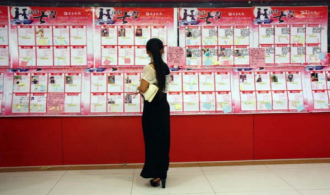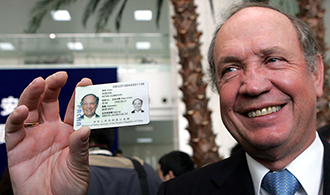Actions speak louder than words
By Tao Wenzhao (China Daily) Updated: 2012-09-25 08:09The Diaoyu Islands have been China's territory for more than 400 years. Japan seized the islands following China's defeat in the Sino-Japanese War of 1894-95, but according to the Cairo Declaration of 1943 and the Potsdam Declaration of 1945, the Diaoyu Islands were returned to China.
Japan gained de facto control of the Diaoyu Islands as a result of a treaty it signed with the US in San Francisco in 1951 in the absence of China. The treaty illegally assigned the Diaoyu Islands and other islets to the Liu Chiu Islands, which were then under the US' control. And after they signed the Okinawa Reversion Agreement in 1971, the US handed over control of the Diaoyu Islands, as part of the Liu Chiu Islands, to Japan.
The Japanese government's latest "purchase" of the Diaoyu Islands is a reflection of its attempt to negate the validity of the Cairo Declaration and the Potsdam Declaration and its desire to reverse the terms of its surrender at the end of World War II.
Meanwhile, despite its announcement that it will not take sides in the Diaoyu Islands dispute, the US has stated on several occasions that the security treaty between the US and Japan covers the islands. However, as a bilateral arrangement with Japan, it is illegal and invalid for Washington to apply its security pact with Japan to the disputed territory. Such a stance at such a sensitive time only emboldens Tokyo in its disputes with Beijing.
During his stop in Japan, Panetta gave a call to strengthen the US-Japan alliance and confirmed that a second land-based missile radar system will be deployed in Japan. Although the Pentagon argued that such a deployment is targeted at the Democratic People's Republic of Korea rather than China, the radar system will cover parts of China.
China is not intending to go to war with Japan. It also looks forward to maintaining a peaceful development road free of foreign intervention and continuing with its modernization drive. But that does not mean China will tolerate its territory being intruded into by other countries. Japan should not underestimate China's determination to maintain its sovereignty and should return to the negotiating table.
As a key player in Asia-Pacific, the US should maintain a genuine neutral stance and avoid intervening in the Diaoyu Islands dispute.
The author is a researcher with the Institute of American Studies, Chinese Academy of Social Sciences.
(China Daily 09/25/2012 page8)

I’ve lived in China for quite a considerable time including my graduate school years, travelled and worked in a few cities and still choose my destination taking into consideration the density of smog or PM2.5 particulate matter in the region.










